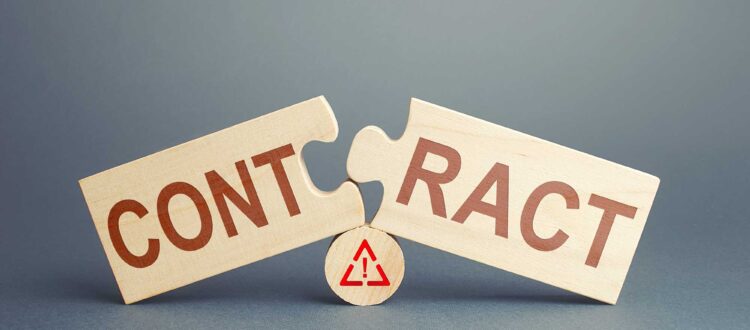3 Common Lease Violations and How You Can Handle Them
Property investors can live or die based on the strength of their lease agreement. But what about the enforceability of a lease? It’s not enough to just have an ironclad, strong lease. What do you do when a tenant is in breach of your lease? Will you realize it? How will you respond to it? In an ideal world, a landlord will find tenants who uphold all the postulates of the lease agreement throughout their occupancy period. Unfortunately, we do not live in an ideal world, and there may be times during your lease period, that a tenant may violate a specific covenant.
In this post, we will walk you through some of the common lease violations that are committed by tenants and how you should approach them.
Late Payments
When you sign a lease agreement with a tenant, you also set out the details for rent payment. This includes the mode of payment and the total timeframe to pay the rent. A good lease agreement also sets the rules and repercussions for late payments. It imposes a late payment fine or rent protection lease violation fee on the tenant.
How to Handle It?
- If a tenant is generally regular with their payments, it is probably good practice to cut them some slack in the event they fall into hard times and need to pay late. Always ask them to set an expectation on when they will be paying rent. Maybe even offer to waive late fees if they in fact pay by the date they have promised.
- For habitual late payers, you must charge fines and penalties as prescribed in the lease agreement.
- If the late payments are compounding and the tenant doesn’t pay the relevant fines either, you should initiate the eviction process.
Commercial Use of Property
While you can’t stop tenants who work from home or freelance, you certainly have the prerogative to intervene if they have started a full-fledged business from your property.
How to Handle It?
- First, make sure your lease agreement categorically prohibits any type of commercial use of the property.
- Make sure you have irrefutable evidence to prove the commercial activity (e.g. clients coming in and out, supplies offloading at the property too often) before reaching out to the tenant.
- If the warning doesn’t work, proceed with the eviction process.
Long-Term Guests
Just like any other household, tenants also welcome guests now and then. Some of them also stay overnight. It is perfectly normal. However, if guests are coming over too often and staying for extended periods, you can escalate the issue with the tenant.
How to Handle It?
- Again, make sure your lease agreement outlines the conditions for guests. You can limit the number of nights a guest can stay on your property. For violations, there can be a daily or monthly penalty. If you want to adopt a zero-tolerance for extended guests, you can link the violation to immediate termination of the lease agreement.
- Start with a warning and ask the tenant the reason for the extended stay of a guest.
- Move with fines and termination of the contract if guest stays are becoming permanent or very frequent.
If you are not a fan of pets and don’t want them on your property, you can also make pet-keeping a lease violation stipulation in your agreement.
Final Thoughts
Dealing with lease violations becomes easier when you have a dedicated and experienced person to monitor and track those violations and effectively communicate with tenants. As a landlord, if you already have too much on your plate, consider hiring a seasoned property manager.
Click here to hire a property manager and learn more about how an experienced property manager can make your life as a property owner easier.









